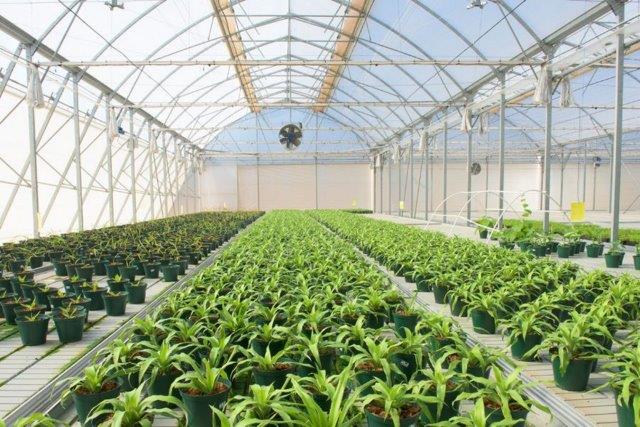ABB’s PCS100 AVC-20 solves utility power quality issues, securing productivity for sustainable hydroponic crop production facility in South Africa
ABB technology is helping Africa’s largest climate-controlled agricultural facility, Dube AgriZone in Dube Tradeport, Durban, South Africa, to improve productivity. The installation of ABB’s PCS100 AVC-20 Active Voltage Conditioner has resolved voltage stability issues in the site’s power network, halting recurring production losses.
Dube AgriZone is a large-scale producer of short shelf-life vegetables for retail markets in South Africa and for international export. The hydroponic facility is the largest climate-controlled, glass-covered area in Africa, growing plants using advanced, soil-free processes that use significantly less water than conventional farming methods.
The site comprises 16 hectares – approximately 30 football pitches – of greenhouses, plant nurseries and laboratories with sensitive electronic instruments, pumps and fans regulating the hydroponic process.
With frequent voltage dips and variations in the site’s power network causing expensive process control equipment damage, resulting in plant outages and production losses, Dube AgriZone appointed Hamsa Consulting Engineers for a solution. A Power Quality Study identified the need for ABB’s high speed PCS100 AVC-20 Active Voltage Conditioner.
Sashlin Govender, Project Engineer for ABB South Africa’s authorised partner, Hamsa Consulting Engineers, said: “Our benchmarking work identified the PCS100 AVC-20 as having the speed needed to give the facility the stable power its processes require. For the first six months since installation, the AVC-20 reduced equipment failure and process disruptions at Dube AgriZone to zero, protecting production, equipment and profits. As a result, production efficiency has also benefitted.”
The PCS100 AVC-20 is ABB’s proven inverter-based system for environments where an unstable network or utility voltage affects productivity. The system’s advanced control software continuously regulates the voltage, detecting and regulating even major voltage dips in less than 20 milliseconds to ensure clean, constant power for sensitive equipment. The system allows facilities to use utility power, without the need to install battery systems or captive power plants.

Ivor Becks, UPS and PCS100 Sales Specialist, ABB in Southern Africa, said: “ABB has a leading role in power protection with efficient solutions that ensure industrial processes receive the continuous, high-quality power they need. Our fast, accurate voltage regulation devices protect sensitive equipment, securing productivity and profits, backed by local teams of experts who help projects run smoothly, keeping the cost of ownership very low.”
To protect the site’s hydroponic process, Hamsa Consulting Engineers had to install the AVC swiftly & efficiently, keeping shutdown of the plant to a strict minimum. Having become an ABB Authorised Systems Integrator for the PCS100 range after attending technical training at ABB’s New Zealand factory, Hamsa Consulting Engineers planning, engineering and electrical design teams ensured a seamless, efficient installation and commissioning of the PCS100 AVC-20 into the client’s facility.
Hamsa Consulting Engineers turnkey solution comprised a 500kVA PCS100 AVC-20, with ABB Tmax molded case circuit breakers, and an ABB surge protection device. Power Quality Analysis of the PCS100 AVC-20’s performance has shown the solution is exceeding expectations in solving power quality issues at the site. Following the success of the project, Dube AgriZone is now installing a second PCS100 AVC unit into laboratories at the site.
The PCS100 AVC-20 removes voltage fluctuations of ±20 percent from the power network, preventing equipment malfunctions and securing productivity with improved operational consistency. ABB’s solution uses an injection transformer in series with the load, enabling the two converters not on the current path between the load and the utility to either add or subtract voltage as required, providing continuous, efficient and precise regulation. In the event of an overload or internal fault condition, a redundant internal bypass ensures the load is continually supplied from the utility.








